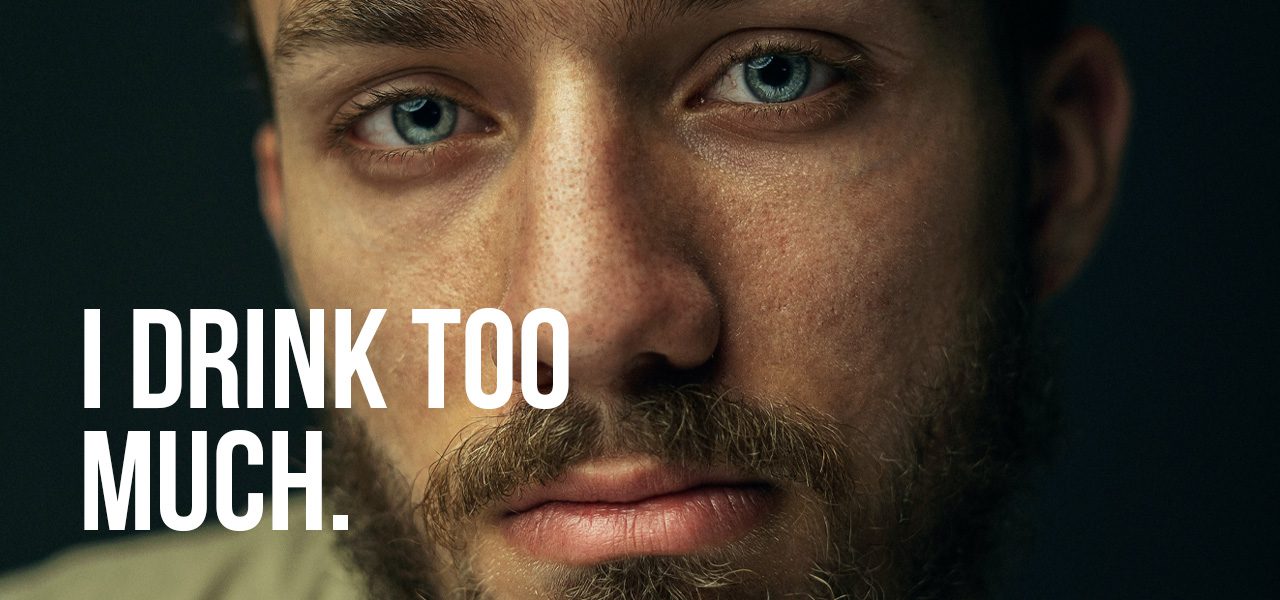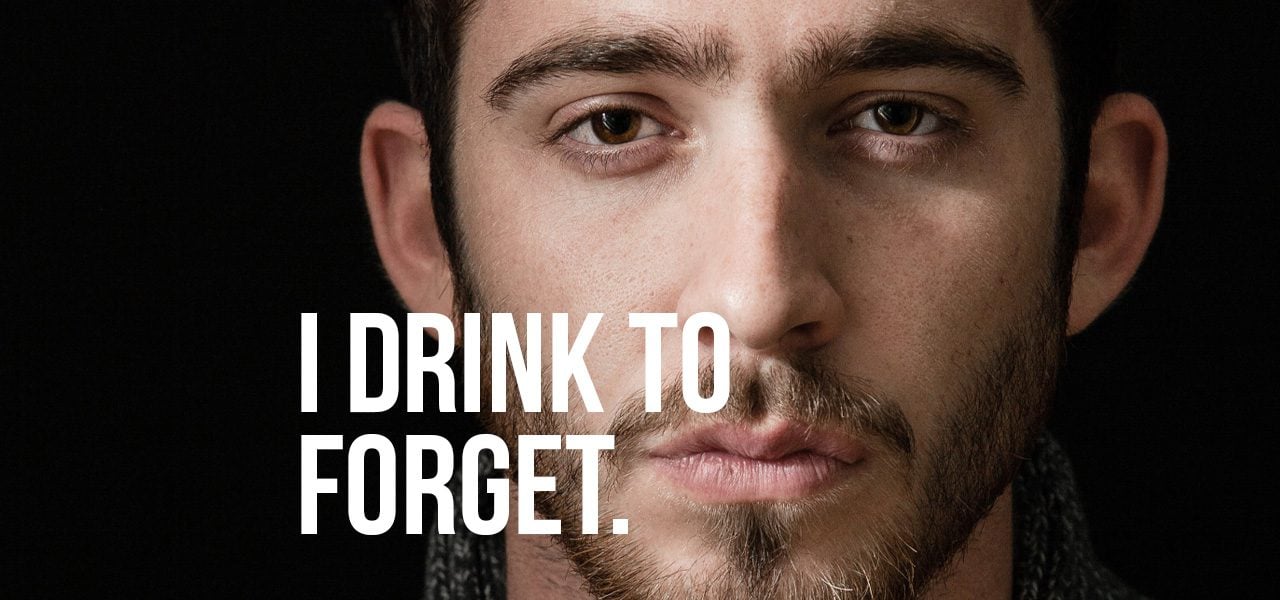Discovering the root of alcohol or drug addiction can be the key to recovering from it.
Experiencing an addiction, whether it be to alcohol or drugs, can destroy your career, your family relationships and friendships, your health – your life. So, finding lasting recovery is a priority.
But what about the root cause of your addiction? Sometimes it can be hard to recover long-term without understanding why you drink or use drugs in the first place. Whether it’s stress at work or a past trauma, unlocking the true origins of addiction can often be the key to recovery that lasts.
EHN Canada’s Reza Toghrol is a Registered Occupational Therapist, Counsellor, and Clinical Manager at our Bellwood Health Services facility in Toronto. We spoke with him about how uncovering the origins of an addiction can help patients find lasting recovery. Here’s what he had to say.
EHN Canada: At its core, what is an addiction?
Reza Toghrol: Addiction is a way to manage an undesirable emotion. So, a lot of folks that suffer from mental health and addiction have difficulty managing their emotions, whether that be anxiety, sadness, grief, shame – and that emotion is very uncomfortable for them to feel.
Some people have different sensitivities, different tolerance levels. Anxiety might be felt differently for some people. Some people might have a very low tolerance, whereas others love rollercoasters and jumping out of a plane. So, it comes down to an inability, a difficulty managing emotions that we don’t find comfortable, like sadness, anger.

EHN Canada: And where does addiction enter into the picture?
Reza Toghrol: So, addiction helps manage that emotion. Is there a neurological component to changes happening in the brain? Yes. Is there a genetic component that could be passed on from family members? Yes, of course. But the root cause of it is that “I struggle with a certain emotion, so I use to manage that emotion.” For example, “I’m feeling sad, so I use.”
EHN Canada: In EHN Canada’s Concurrent Disorders Treatment Program, how are both group and individual sessions used to treat addiction and underlying mental health disorders?
Reza Toghrol: When we are in a group therapy session, we’re looking at inability to manage emotions. Now, whatever the reason might be, there is an emotion that comes up that you find very uncomfortable and you use [drugs or alcohol] in order to manage that emotion. So, group sessions are more about skills, more about managing emotion, how do I regulate the emotion? More about relapse prevention. How do I prevent this when I leave here? How do I recognize my triggers and prevent relapse?
In individual sessions, you’re going into more details, a patient’s specific case, the underlying reasons. I would say it comes out more in the one-to-one sessions.
But it also depends on the program, too. In our TRP Trauma program, Trauma and Addiction program or Trauma and Psychological Injury program, we actually talk about some of the traumatic events in group. And the groups are usually smaller, like five to six patients at a time.
EHN Canada: When patients arrive for treatment, do they often come with an idea of the root cause of their addiction?
Reza Toghrol: It’s a mixture of both. Some people are in denial. So those are the folks that are here because a significant other or mom and dad told them to come there. Some people are still processing it here.
If you’re coming to treatment, the more vulnerable you are, the more you’re disclosing, the more you will get out of it. Occasionally, people learn the hard way that if they don’t open up, don’t look at the root cause of their addiction, they won’t achieve long-term recovery. It is truly important to seek and acknowledge that root of their drug or alcohol dependence.
If individuals have not come to a self-realization that they need help they will likely come back to us multiple times. If someone comes to us because their parents are pressuring them or they want to beat a case in court or get their driver’s license back, chances are they will relapse and return.
Treatment involves difficult work and the intention to want to get better has to be there. It can’t be to satisfy parents or get “people off my back”. The individual would need to be at a state that they acknowledge they have a problem and they want to seek help for it.
As far as root cause goes, this is something we hope to get individuals to recognize while they are in treatment. This is about gaining insight into our maladaptive thoughts and behaviours.

EHN Canada: You mentioned the idea of an environmental cause. Could you expand on that a little bit?
Reza Toghrol: So, when we talk about inability to manage emotions, it can be from environment.
For example, if every time your partner yells and you do what they ask you to do, your partner is learning that if they yell, you will respond. So, we shape their behavior. They’re going to be yelling all the time because we’ve reinforced it. So now that individual may display anger all the time, but it’s something that we’ve reinforced.
If you grew up in a family that every time you cried, your dad would say, “Stop it. Men don’t cry” well, as a boy, how are you supposed to manage sadness? You learn to suppress it, mask it. This is what I mean by environment. So, you learned that sadness is bad. You learned that sadness needs to be pushed down. So, our clients know, hey, this is not about pointing fingers at moms and dads. There are so many different factors that influence how, as adults, we manage our emotions.
EHN Canada: So, at what point in that kind of process would substance use come into play?
Reza Toghrol: Let’s say in this example, I have learned to mask or suppress sadness. But sadness is an emotion that is unbearable. So instead of processing it, maybe I’ll numb it by having a drink. I can’t show it, or else I’m not a man or I’m weak or I’m not allowed. So, I’m going to use to numb it so that intensity doesn’t bother me as much. So it could be in teenage years, maybe I was smoking marijuana in my adolescent years, but then it turns into alcohol or heavier substances to manage that emotion.
Especially something with parents and all these very deeply rooted circumstances. People will come to treatment and say, no, my mom and dad are great. They were so loving; they were so caring.
There’s biology involved, there’s environment involved, there’s upbringing involved. So, when clients see that, then they go back and say, oh, maybe this is what happened to me and maybe this is what kind of stemmed my inability to manage this emotion and start using.
That’s what insight is, getting that perspective of how this could have originated.
EHN Canada: And what about in cases of trauma?
Reza Toghrol: With trauma, it is a little bit different because our brain is geared for survival. So, when something traumatic happens to us, the brain is going to be on high alert to prevent bad stuff from happening to you again. So, you will be in this hyper vigilant state because something bad happened or your brain’s job is survival. The way you process information changes too. You will develop a lot of protective mechanisms.
There are so many layers to trauma because for someone, this state of being hyper vigilant is just taxing. Imagine being on guard all the time. So, you may need to use to kind of settle that emotion. You may need to “use” to manage that state of being hyper alert.

EHN Canada: So, when a patient goes through treatment and learns how to deal with a past trauma, for example, are those same tools helpful in potential future events?
Reza Toghrol: Oh, yes, for sure. If you’re learning skills to manage your emotions, it doesn’t necessarily only mean the emotion that comes up during trauma. What if it’s an emotion that comes up during your fight with your spouse? So, it’s applicable across the board in life. You are learning coping strategies, healthy ways of managing emotions, rather than using, rather than running away, rather than punching a wall because you’re angry.
Whether you have addiction, depression, anxiety, whatever has brought you under this roof, we all have the same common denominator, the same issue: difficulty managing emotion. So, our role is to teach some skills that challenge those thoughts that influence emotions to allow you to cope better.
EHN Canada: Thank you for sharing all of this with us.
Reza: Thank you. My pleasure!
Concurrent Disorders Treatment
Oftentimes, an addiction is a part of an underlying mental health condition. Correctly diagnosing these concerns — and designing an evidence-based treatment plan that tackles them — is critical to lifelong recovery.
Our Approach to Treating Concurrent Disorders
We don’t have a one-size-fits-all approach to treating concurrent disorders. Instead, we personalize treatment for your needs. We begin with an assessment to ensure we have the right combination of programming to give you the tools you need to succeed in treatment and beyond.
Then, whether you’re coming to us for drug and alcohol addiction treatment, anxiety and depression treatment, or alcohol addiction and trauma treatment, for example, we’ll tailor your care plan to address all underlying concerns. You’ll participate in dedicated therapy and educational sessions for the concurrent disorders, while learning to make connections that can help you disrupt these painful cycles of emotions and ineffective coping mechanisms.
The common thread between all of our programs is evidence-based treatment. You’ll participate in one-on-one and group counselling, Cognitive Behavioural Therapy (CBT), Dialectical Behavioural Therapy (DBT), physical exercise, nutritional support, and other proven approaches to heal your mind, body, and spirit.
How To Succeed in Treatment for Concurrent Disorders
We’re committed to your success both during and after treatment.
Your treatment plan isn’t rigid; we adapt it to meet your changing needs. This flexible approach allows us to do whatever is necessary to ensure you safely continue on the journey to recovery.
While you’re in our care, your family receives the support they need to help you maintain your recovery when you return home.
When you finish your treatment, you join our Aftercare program, which gives you access to continued help in person or online. During Aftercare, you will also have the opportunity to access drug and alcohol monitoring for continued accountability.
Contact Us
Bellwood
Toronto, ON
1-800-387-6198
Edgewood
Vancouver Island, BC
1-800-683-0111
Ledgehill
Lawrencetown, NS
1-800-676-3393
Sandstone
Calgary, AB
1-587-350-6818
Gateway
Peterborough, Ontario
1-705-535-0636
Nouveau Depart
Montreal, Quebec
1-888-488-2611
Outpatient Services (Multiple locations): 1-888-767-3711



